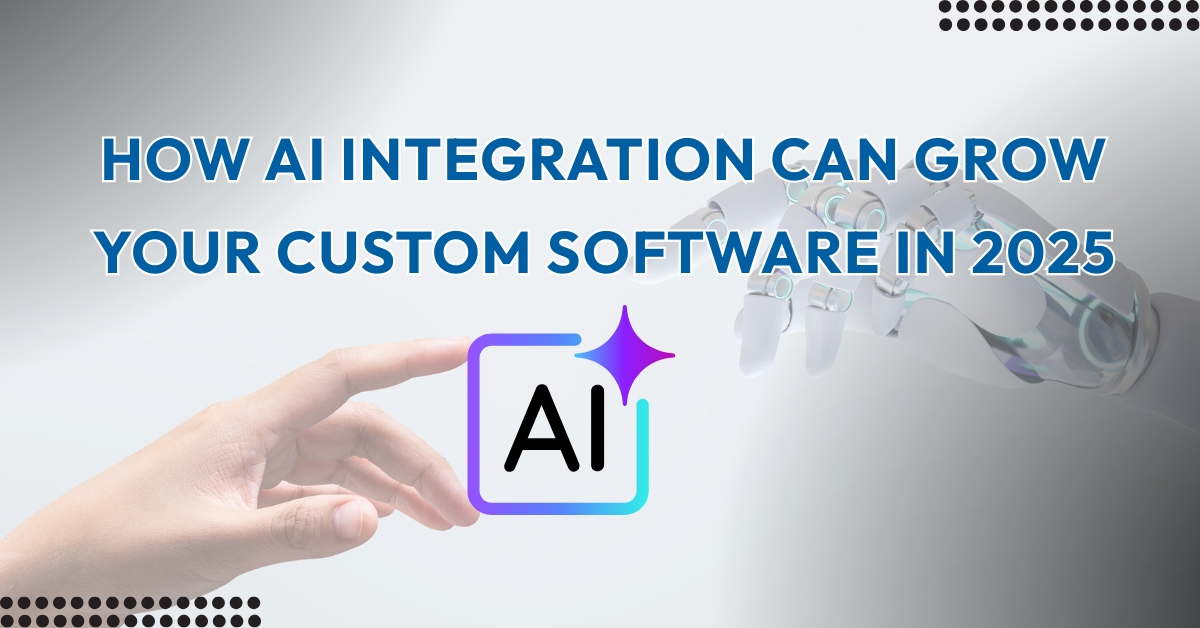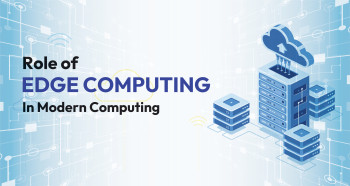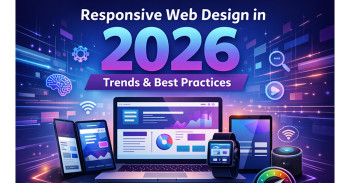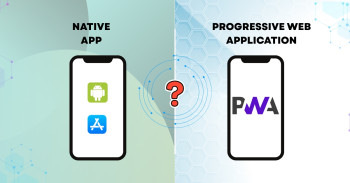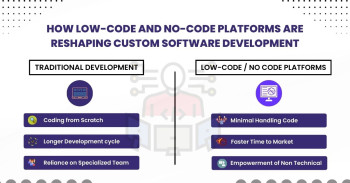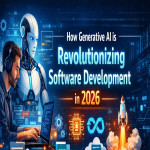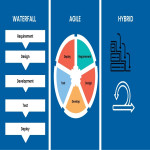How AI Integration Can Grow Your Custom Software in 2025
Introduction
Artificial Intelligence (AI) has transitioned from a futuristic idea to a significant influence on contemporary business operations. As we approach 2025, the incorporation of AI into custom software development is emerging as a crucial catalyst for growth, efficiency and innovation. By optimizing workflows and improving customer experiences, AI enables businesses to maintain their competitive edge in a swiftly changing digital landscape. This article will explore how AI integration can enhance your custom software in 2025, the primary advantages it offers and the strategies you can implement to ensure the longevity of your digital solutions.
1. Enhanced Automation for Business Efficiency
Automation represents a crucial method through which AI revolutionizes software development. By automating tasks such as data entry, reporting and handling customer inquiries, organizations can allocate their human resources to more strategic endeavors.
Benefits of AI-driven automation include:
- Decreased operational expenses
- Reduced human error
- Accelerated turnaround times
For instance, the incorporation of AI-enabled bots within custom CRM systems can autonomously classify leads, arrange follow-ups and deliver real-time analytics. This guarantees that business operations proceed smoothly, enabling companies to expand without raising labor costs. AI automation has quickly become a cornerstone for businesses seeking scalability.
2. Personalized User Experiences
In 2025, personalization will no longer be optional—it will be
expected. AI software development allows custom software to analyze user
behavior, preferences and interactions, delivering highly tailored
experiences.
Use cases include:
- E-commerce apps
offering AI-driven product recommendations
- Healthcare software customizing patient treatment plans
- Learning platforms adjusting content based on student performance
Personalization not only boosts engagement but also strengthens customer loyalty, ultimately driving long-term growth.
3. Advanced Predictive Analytics
The capability of artificial intelligence software development to
analyze extensive datasets provides businesses with predictive insights that
would be unattainable through manual processes. By integrating predictive
analytics into custom software solutions, organizations can project trends,
foresee customer requirements and make informed decisions in advance.
Examples:
- Financial applications that
forecast market fluctuations
- Supply chain software that predicts demand
- Marketing tools that evaluate campaign effectiveness
Predictive analytics equips decision-makers with practical intelligence, reducing risks and enhancing opportunities.
4. Smarter Decision-Making With AI Insights
AI-powered dashboards and data visualization tools convert raw data
into actionable insights. Rather than depending on intuition, leaders are able
to make more informed, evidence-based decisions.
Key benefits:
- Enhanced precision in
strategic planning
- Immediate tracking of KPIs
- Data-supported insights for quicker adjustments
For example, incorporating natural language processing (NLP) allows executives to pose questions to software in straightforward English and obtain comprehensive, data-supported responses instantly. This demonstrates how AI software development companies are enabling smarter business leadership.
5. Strengthened Cybersecurity
As cyber threats continue to develop, security strategies must also adapt. Custom software enhanced by AI is capable of detecting atypical activities, identifying weaknesses and responding to threats instantaneously.
AI cybersecurity capabilities include:
-
Anomaly detection in real time
- Automated responses to threats
- Ongoing vulnerability assessments
In sectors such as finance, healthcare and e-commerce, AI-powered cybersecurity guarantees compliance, safeguards customer trust and averts expensive breaches.
6. AI-Powered Customer Support
Customer expectations in 2025 demand quick, accurate and 24/7 assistance. AI integration in custom software development enables businesses to provide instant help through chatbots, voice assistants and self-service platforms.
Benefits:
- Reduced response times
- Cost savings on support teams
- Consistent and accurate information delivery
This not only improves customer satisfaction but also allows businesses to scale their support without overloading resources.
7. Seamless Integration With IoT and Cloud
The integration of AI is at its most effective when it is paired with the Internet of Things (IoT) and cloud computing. In 2025, custom software development will be able to utilize AI to oversee connected devices, enhance performance and evaluate data across various distributed systems.
Examples include:
- Smart manufacturing
platforms that optimize equipment utilization
- Cloud-based logistics applications that enhance delivery routes
- Smart home solutions that dynamically adjust energy consumption
This collaboration guarantees that businesses stay agile, scalable and prepared for the future.
8. Preparing for AI-Driven Future Scalability
As companies expand, their software needs to scale in tandem. AI not only assists in managing existing workloads but also forecasts future requirements, enabling organizations to adjust effectively.
Strategies for ensuring longevity with AI include:
- Modular software architecture for seamless AI feature
enhancements
- Continuous learning models that adapt to user demands
- Cloud-native infrastructure for effortless scalability
This positions AI integration as a long-term investment, guaranteeing that custom software stays pertinent and competitive.
FAQs About AI Integration in Custom Software
1. What industries benefit most from AI integration in software?
Industries like healthcare, finance, retail, logistics and education benefit significantly, as AI enhances personalization, automation and predictive insights.
2. How costly is it to integrate AI into custom software?
Costs vary depending on complexity, but AI integration is increasingly affordable thanks to open-source frameworks, cloud AI services and modular implementation options.3. Does AI integration replace human workers?
Not entirely. AI handles repetitive tasks, but human expertise remains crucial for strategic, creative and ethical decision-making.4. What are the risks of AI in custom software?
Risks include biased algorithms, data privacy issues and high initial integration costs. However, proper governance and testing mitigate these concerns.5. How can businesses prepare for AI integration in 2025?
Start with small AI projects, invest in quality data collection, train employees on AI literacy and partner with trusted AI software development companies.Conclusion
The integration of AI has transitioned from being a competitive advantage to an essential requirement for businesses aiming to scale and innovate in 2025. With applications ranging from automation and predictive analytics to personalized experiences and cybersecurity, AI is revolutionizing the role of custom software development in fostering growth. Organizations that adopt AI at this stage will find themselves in a stronger position to succeed in the future. Are you prepared to begin? Collaborate with a software development team that recognizes the potential of artificial intelligence software development and can customize solutions to meet your specific business objectives.
Take Your Software to the Next Level
Ready to implement AI-driven innovation in your business? Our team specializes in custom software development services
that integrate cutting-edge AI technologies to boost efficiency, scalability and growth.
Let’s turn your ideas into intelligent, future-ready solutions — connect with us today to start building smarter software for 2025 and beyond.
